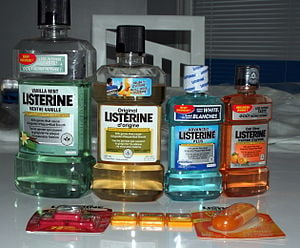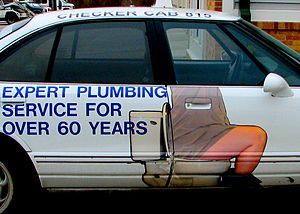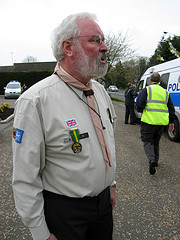Misleading Advertising Claims-Buyer Beware
By Jaco Grobbelaar on Tue, Oct 11, 2011 @ 09:21 PM

We think we are not paying attention as advertisements bombard us throughout the day and night. Our mind wanders, we go to the kitchen or we channel surf. But while we are supposedly not listening, most of the time we are being subjected to ads that are not telling "the truth and nothing but the truth". They hedge a little. We can learn to listen to the claims and see the flaws.
I need to remind you that legally the advertisers can get away with this because of the language of the claim. So in order to find the flaws we are going to examine the language and look at the logic that keeps the ad on the air.
The Weasel Claim
A weasel word is a modifier that almost makes the claim tha tnegates what follows. Jeffrey Schrank (attributions at the end of this article) who came up with this way to study ads in the 1970s said that “weasel words” are named after the egg-eating habits of weasels.
A hungry weasel sucks the inside of the egg, but leaves the shell looking fine. Only by looking carefully does a person see that the egg is hollow. So it is with words that make the ad hollow.
Some of these are champion weasel word “helps”, “like” as a comparison, “virtual”, “acts”, “can be”, “works”, “refreshes”, “the feel of”, “fortified”, “strengthened”, “enriched”, “comforts”, “as much as”, “fights”, and “tackles”. This is just a few. You can find many more yourself.
Some examples if you please:
“Helps control dandruff symptoms with regular use”. Weasel words are “helps control” and “regular use”. The product does not “stop dandruff”.
“Leaves dishes virtually spotless”. “Virtually” is a big weasel word. We are supposed to think the dishes will be “spotless.” Why didn’t the product work for me?
“Listerine fights bad breath”. It may “fight” it, but it doesn’t “stop” it, like you might think.
The Unfinished Claim
An unfinished claim is one that claims the product is better or has more, but doesn’t finish the comparison.
For example:
"Anacin: Twice as much of the pain reliever doctors recommend most." This claim fits in a number of categories, but it does not say what pain reliever the doctors do recommend most.
"Coffee-mate gives coffee more body, more flavor." You are left asking more than what brand ? Also note that "body" and "flavor" are weasels.
The “We’re Different and Unique” Claim
This kind of claim broadcasts that there is nothing like it. If Coors added pink food coloring to its beer, they could say, “There’s nothing like new pink Coors.” People are supposed to think that uniqueness equals superiority.
Examples:
“There is no other mascara like it.” Well, they all have slightly different brushes and possibly slight variations in chemical make-up, but is that claim relevant to the value of the product?
“Chrysler 300: The only real in the paper world.” Yes that may be true, but we don’t drive around in a paper world.
The “Water is Wet” Claim
“Water is wet” claims tell us something about the product that is the truth for all products in that category. This claim is a statement of a fact, but is not really giving you any information of the advantage of this product over the competition
Examples:
“Great Lash greatly increases the diameter of every lash.” That’s why women buy all those kinds of products.
“Rheingold, the natural beer.” Aren’t all beers made of grain and water? BTW Rheingold Beer was off the market for some time, but it has made a comeback.
In this article we began looking at the different kinds of advertising claims that supply some truth and some questions in each ad. The most interesting one to me is the weasel one. This is the one most filled with words meant to confuse and yet keep the ad from being a complete lie. Look around and see if you can identify some ads using weasel words, unfinished claims or the different, and unique claims and tell me about them in the comment box at the bottom.
This series of ideas come from Jeffrey Schrank’s handout found at http://home.olemiss.edu/~egjbp/comp/ad-claims.html which comes from Schrank, Jeffrey. “The Language of Advertising Claims.” Teaching About Doublespeak. ed. Daniel Dieterich. Illinois: NCTE, 1976; the Second Edition of Point Counterpoint: Eight Cases for Composition, edited by Thayle K. Anderson and Kent Forrester. Fort Worth: Harcourt Brace Jovanovich, 199; Scott Bennet’s site: http://www.horton.ednet.ns.ca/staff/scottbennett/web/ads/adclaims.html; and The Language of Advertising, Peter Sells and Sierra Gonzalez http://www.stanford.edu/class/linguist34/index.htm, just to name a few. If these are not credited correctly, the fault is mine.
Jaco Grobbelaar, owner of BroadVision Marketing, helps business owners and business professionals put marketing strategies in place that consistently secure new clients. He can be reached at jaco@broadvisionmarketing.com or 707.799.1238. You can “Like” him at www.facebook.com/broadvisionmarketing or connect with him on www.linkedin.com/in/JacoGrobbelaar.
Related articles
- Hold while we lift our game (theage.com.au)
- Are Those Miracle Claims Real? Here's How to Find Out (bellasugar.com)
Share this
Previous story
← The Secret Language of Advertising ClaimsYou May Also Like
These Related Stories
Being Conned by Misleading Advertising Claims


Being Conned by Misleading Advertising Claims
Thu, Oct 13, 2011 @ 07:44 PM
4
min read
The Secret Language of Advertising Claims


The Secret Language of Advertising Claims
Mon, Oct 10, 2011 @ 12:57 AM
4
min read
How do you select potential leaders?


How do you select potential leaders?
Mon, Oct 17, 2011 @ 12:35 AM
3
min read
.png?width=302&height=75&name=BVM%20Logo%20-%20transparent%20(1).png)


No Comments Yet
Let us know what you think